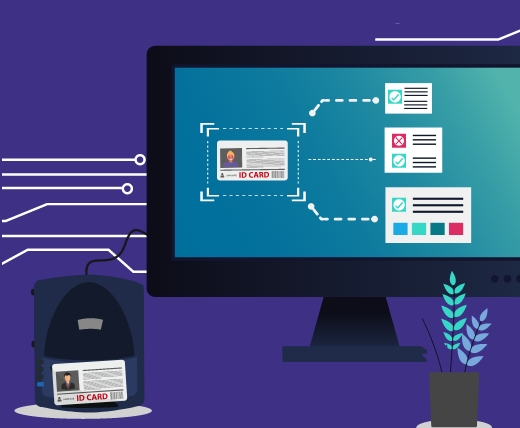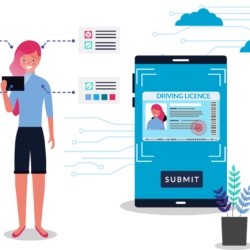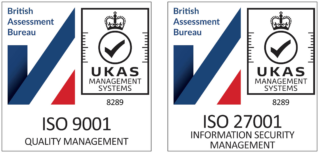Why remote identity verification helps more than just compliance

The past few years have taught us that it is possible for many of us to work efficiently with reduced personal contact. Identity checking – a vital component of Right to Work (RtW) and Anti-money-laundering (AML) compliance – is one of many tasks we have learned to perform remotely.
We have seen a growth in the use of remote identity verification in the financial services sector to support AML compliance. This may have occurred naturally, as fintech by its very nature involves a shift away from face-to-face interaction. But remote identity verification is also proving its worth across other sectors, some of which might not have considered it, had the pandemic not forced remote working upon us.
Remote ID verification tools are particularly useful:
- In situations where confirming identity is complex
- When geographical constraints make in-person meetings impossible
- When organisations are looking for a more practical, timely and cost-efficient way of confirming identity than in-person checks.
Beyond compliance
Regulatory compliance requirements are ever-changing, and organisations should, of course, always adhere to the latest AML and RtW guidelines to protect themselves from legal challenges. But robust AML and RtW checks are more than a legal necessity – they make good business sense. We work with organisations across a range of public and private sectors, and in all these areas, remote identity checks can offer value over and above compliance.
The Royal Free London NHS Foundation Trust recruit more than 3,000 staff every year through their Shared Services team. Thanks to TrustID’s cloud-based identity verification service, applicants are able to remotely upload document images using a secure link. A passive liveness check, based on facial recognition biometrics, confirms that the applicant is the document holder. This process is more efficient than asking applicants to present their documents face to face – helping the Trust to stay on top of its busy recruitment schedule and get much needed employees into the workplace more quickly.
When the pandemic hit, London Metropolitan University looked for a way to check students’ identity remotely before enrolling them and issuing student cards. Again, using TrustID’s cloud-based identity verification service, the university is now able to remotely confirm the identity of applicants. The change in process also enables the university to print ID cards before students arrive, easing and improving the onboarding process for the admissions team, and new students.
Oxford City Council needs to confirm the identity of its service users by checking documents including passports, visas and driving licences. The council was concerned that this was a strain on its resources, as front-line staff required extensive training in document identification, and were using up a lot of time in conducting the checks. Staff initially chose TrustID’s scanner technology to identify fraudulent documents. In the first year of operation, the council saved at least £36,000 on detecting fraudulent applications for housing alone. When the pandemic hit, Oxford City Council added TrustID Cloud, which enables service users to upload identity documents remotely when face-to-face checks are not possible.
These scenarios highlight that remote identity verification offers more benefits than just compliance:
- increasing efficiency
- easing onboarding
- improving customer experience
- saving time
- saving money.
What to look for in a remote identity verification solution
To make the most of the additional operational benefits that remote identity verification can deliver, it is important to select a solution carefully. Here are three things you should consider before choosing a solution:
- Ease of use. With the rise in hybrid working, a remote identity verification system needs to be easy for in-house staff to use and should also enable individuals such as new customers, job applicants or service users to remotely upload their identity documents for verification.
- Reliability. Choose a supplier with a proven track record. TrustID verifies thousands of identity documents every day, including passports, ID cards and driving licences. Its technology is backed by the best team of document verification experts in the business.
- Scalability. Look for a service provider that offers a pay-per-use service and a low minimum order, so that you only pay for what you use.
To find out more about remote verification checks, visit our Online Checks page.
Want to find out more?
If you’re interested in finding out more about identity checks please get in touch today.
Sign up to receive updates
Receive notifications from TrustID direct to your inbox. Simply fill out your email address in the form below.
Want to find out more?
We’d be really happy to chat through your requirements and offer advice on the best service for your business.
Tel: 0118 466 0822 or email us.
Request a callback


